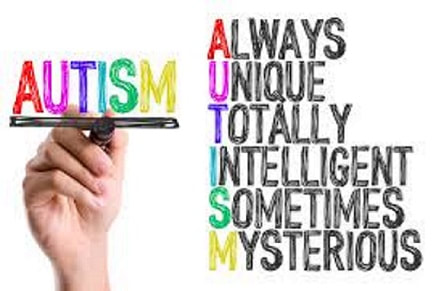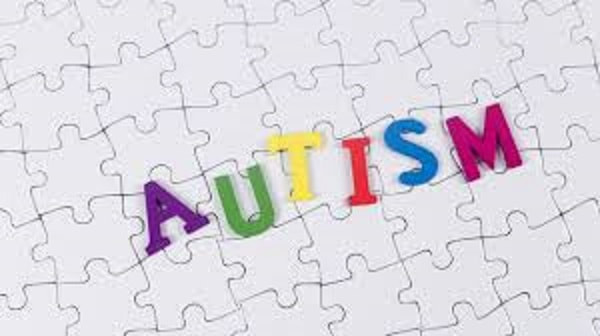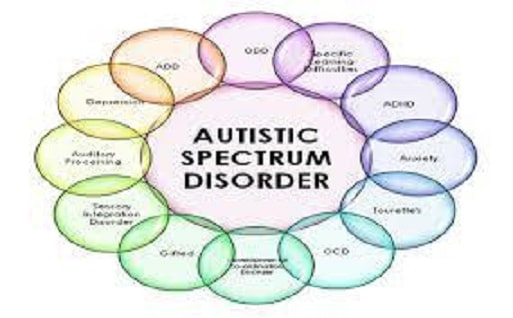PUBERTY AND AUTISM
Puberty is the process of physical changes through which a child's body matures into an adult body capable of sexual reproduction. It is initiated by hormonal signals from the brain to the gonads: the ovaries in a girl, the testes in a boy. (Wikipedia)
A time of mixed feelings ~ It’s a good idea to talk about Puberty early with your child with ASD To give them time to adjust to changes.
PREPARING FOR PUBERTY
For an autistic adolescent, the physical changes that indicate increasing maturity can be quite out of place with where the individual is at in other aspects of their development, such as social skills.
Parents may worry their child is developing an adult’s body, without all the adult capabilities to accompany this.
When a child reaches puberty, families may have mixed feelings.
They may be proud their child is developing into an adult or families may view this period with trepidation, feeling unsure of how to explain all the changes to their child.
Parents may worry their child is developing an adult’s body, without all the adult capabilities to accompany this.
When a child reaches puberty, families may have mixed feelings.
They may be proud their child is developing into an adult or families may view this period with trepidation, feeling unsure of how to explain all the changes to their child.
PHYSICAL CHANGES
Puberty is the time in life when a boy or girl becomes sexually mature.
It is a process that usually happens between ages 10 and 14 for girls and ages 12 and 16 for boys.
It causes physical changes, and affects boys and girls differently.
Children with autism spectrum disorder (ASD) often need more time than typically developing children to adjust to and understand changes in their lives.
If your child isn't prepared for the physical changes that happen in puberty, they might feel confused, or frightened that there's something wrong with them.
It is a process that usually happens between ages 10 and 14 for girls and ages 12 and 16 for boys.
It causes physical changes, and affects boys and girls differently.
Children with autism spectrum disorder (ASD) often need more time than typically developing children to adjust to and understand changes in their lives.
If your child isn't prepared for the physical changes that happen in puberty, they might feel confused, or frightened that there's something wrong with them.
Puberty Can Be Daunting For Any Teen.
Physical changes, rapidly changing hormones, new routines for hygiene, and mood swings place added stress onto our teens with autism.
Developmental delays only compound the hardship parents face when helping their child navigate adolescence.
It is important to start preparing yourself and your child for these changes prior to the onset of puberty.
Developmental delays only compound the hardship parents face when helping their child navigate adolescence.
It is important to start preparing yourself and your child for these changes prior to the onset of puberty.
PREPARING YOUR CHILD FOR PUBERTY
QUOTED ~ COURTESY OF RAISINGCHILDREN.NET.AU
When to start preparing children with autism spectrum disorder for puberty
Most parents wonder when to start talking about puberty with their children. You might be worried that you’ll confuse your child with information that he doesn’t need yet.
Children with autism spectrum disorder (ASD) often need more time than typically developing children to adjust to and understand changes in their lives.
Children with autism spectrum disorder (ASD) often need more time than typically developing children to adjust to and understand changes in their lives.
Help Your Child Cope With His/Her Emotions
If your child isn’t prepared for the physical changes that happen in puberty, they might feel confused, or frightened that there’s something wrong with them.
You know your child best, so you’re the best person to decide how much preparation time they need. There might also be other things that influence your decision.
If your child has a behaviour or habit – for example, taking his clothes off – that would be best changed before puberty starts, you might start a bit earlier.
He’ll need extra help to understand why he can’t take his clothes off any more.
You know your child best, so you’re the best person to decide how much preparation time they need. There might also be other things that influence your decision.
If your child has a behaviour or habit – for example, taking his clothes off – that would be best changed before puberty starts, you might start a bit earlier.
He’ll need extra help to understand why he can’t take his clothes off any more.
WHEN DOES PUBERTY START
As a guide, puberty usually begins around:
- 10-11 years for girls
11-13 years for boys.
But it’s normal for the start of puberty to range from 8-13 years in girls and 9-14 years in boys.
Every child is different. Genetics, nutrition and social factors all play a role in the onset of puberty.
There’s no way of knowing exactly when your child will start puberty.
ASD doesn’t affect when puberty starts.
Every child is different. Genetics, nutrition and social factors all play a role in the onset of puberty.
There’s no way of knowing exactly when your child will start puberty.
ASD doesn’t affect when puberty starts.
What to say about puberty to your child with autism spectrum disorder
Perhaps your child has noticed how older people are physically different from him. This is a great starting point for discussion.
Young children can link having a beard, breasts or underarm hair with ‘having an adult body’.
For older primary-age children, you can use the word ‘puberty’. You might say, ‘Puberty is when a child’s body changes into an adult body’.
Then when your child notices physical differences in other people, you can talk about them in relation to ‘puberty’.
This can help your child understand the change from child to adult.
Children with autism spectrum disorder (ASD) might understand what happens to other people, but find it hard to apply this understanding to themselves.
It can help to make clear statements like ‘As you change into an adult, you’ll also have underarm hair’.
An ‘All about me’ book can help your child see how they change over time. It could include pictures of your child now and when she was younger.
It will also help to explain that boys and girls develop differently – for example, a boy won’t grow breasts.
Your child might also have the wrong idea about some issues, so you need to watch out for things that need more explanation.
For example, extra hair just grows on the underarms and pubic area in women, and also on the chest and chin of a man – but not all over the body.
Young children can link having a beard, breasts or underarm hair with ‘having an adult body’.
For older primary-age children, you can use the word ‘puberty’. You might say, ‘Puberty is when a child’s body changes into an adult body’.
Then when your child notices physical differences in other people, you can talk about them in relation to ‘puberty’.
This can help your child understand the change from child to adult.
Children with autism spectrum disorder (ASD) might understand what happens to other people, but find it hard to apply this understanding to themselves.
It can help to make clear statements like ‘As you change into an adult, you’ll also have underarm hair’.
An ‘All about me’ book can help your child see how they change over time. It could include pictures of your child now and when she was younger.
It will also help to explain that boys and girls develop differently – for example, a boy won’t grow breasts.
Your child might also have the wrong idea about some issues, so you need to watch out for things that need more explanation.
For example, extra hair just grows on the underarms and pubic area in women, and also on the chest and chin of a man – but not all over the body.
Language and terminology for children with autism spectrum disorder
You might need to be careful about your use of language, particularly if your child takes things literally.
For example, if you describe your son’s voice as ‘breaking’, your child might find this worrying.
Instead you could say something like, ‘Your voice is changing and will get deeper’. You could also explain that men’s voices are usually deeper than women’s.
Your child’s father’s voice, or his older brother’s, could be good examples.
Giving your child both the formal terms and the everyday words for body parts might be useful – for example, ‘boobs’ refer to breasts.
Or people talk about a voice ‘breaking’ when they mean a voice getting deeper.
For example, if you describe your son’s voice as ‘breaking’, your child might find this worrying.
Instead you could say something like, ‘Your voice is changing and will get deeper’. You could also explain that men’s voices are usually deeper than women’s.
Your child’s father’s voice, or his older brother’s, could be good examples.
Giving your child both the formal terms and the everyday words for body parts might be useful – for example, ‘boobs’ refer to breasts.
Or people talk about a voice ‘breaking’ when they mean a voice getting deeper.
Tricky questions about puberty
If your child asks awkward or tricky questions, try to be patient and honest. It’s OK to say, ‘I don't really know – let’s work it out or look it up together’.
If your child asks questions at inappropriate moments, it might help to have a standard response that everyone in the family can use – for example, ‘That’s a good question, but let’s talk about it when we get home’.
Your child needs to know, though, so remember to deal with the question when you get home.
You can also help your child feel good about herself and develop a positive self-image by reassuring her that physical and sexual changes are a natural part of growing up.
If your child asks questions at inappropriate moments, it might help to have a standard response that everyone in the family can use – for example, ‘That’s a good question, but let’s talk about it when we get home’.
Your child needs to know, though, so remember to deal with the question when you get home.
You can also help your child feel good about herself and develop a positive self-image by reassuring her that physical and sexual changes are a natural part of growing up.
Visual supports to help children understand puberty
You could show your child pictures of yourself at different ages so your child can see how you looked different. This can help your child understand when puberty occurs.
You could also use drawings of a body to show how it looks at different ages. Label the body parts and highlight the changes that will happen – from getting taller to growing pubic hair.
You could also use drawings of a body to show how it looks at different ages. Label the body parts and highlight the changes that will happen – from getting taller to growing pubic hair.
Social Stories™ to help children understand puberty
You can create Social Stories™ for many topics to do with puberty.
If you have a daughter with autism spectrum disorder (ASD), Social Stories™ might cover developing breasts and widening hips, starting periods and so on. For example:
If you have a daughter with autism spectrum disorder (ASD), Social Stories™ might cover developing breasts and widening hips, starting periods and so on. For example:
- The shape of my body will change.
- I will start to have periods.
If you have a son with ASD, Social Stories™ might cover penis and testicle growth, erections, wet dreams and voice changes:
- My body will look different.
- My body will do new things.
- My voice will sound different.
Here’s an example of a Social Story™ on wet dreams:
- When I am sleeping, I might have a dream. When I wake up, my sheets might be sticky and wet. This is called a wet dream.
- When I have a wet dream, I should always wash my testicles (balls) and penis when I wake up.
- Wet dreams happen to lots of boys.
- Boys can be unsettled when they see semen for the first time, so it’s a good idea to explain about erections and wet dreams before they happen.
- Let your boy know it’s normal and will stop.
- Relating wet dreams and erections to the other changes he’s noticing, like growing hair, can help him understand that it’s a normal part of growing up.
You will probably need to go over these messages many times with your child. Try to be patient with your child – and yourself.
You might find it helpful to share experiences and get support from other parents.
You could try online or face-to-face support groups.
UN-QUOTE
Be Informed
Your Responsibility
YOU Can Help Your Child Cope With His/Her Emotions THATS HAPPENING With the physical changes taking place an allay their Fears and Confusion that there might be something wrong with them.
Help To Relieve Your Loved Ones Anxiety, Depression, Eating Disorders, Insomnia and Stress, And Enable You And Yours to Enjoy a More Normal And Stress Free Way Of Life , by being informed.
You know your child best, so you’re the best person to decide how much preparation time they need.
A useful contact for further advice is your local GP ~ Just Retain Your Patience and Be Understanding
Help To Relieve Your Loved Ones Anxiety, Depression, Eating Disorders, Insomnia and Stress, And Enable You And Yours to Enjoy a More Normal And Stress Free Way Of Life , by being informed.
You know your child best, so you’re the best person to decide how much preparation time they need.
A useful contact for further advice is your local GP ~ Just Retain Your Patience and Be Understanding
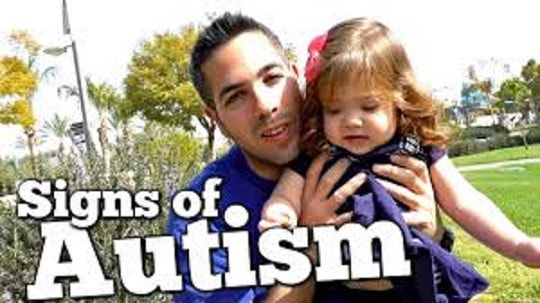


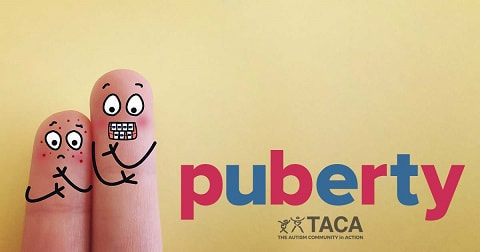
.png)

